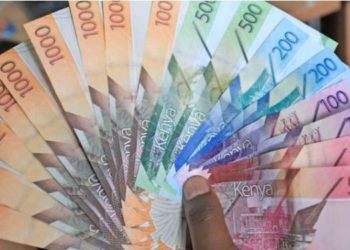Kenya’s banking industry has sounded the alarm over a government proposal to introduce a 16% value-added tax on financial transactions, warning it could push the total taxation on the sector to a staggering 40% and undermine efforts to boost financial inclusion and economic growth.
The stern rebuke came from the Kenya Bankers Association, which urged the national assembly to reconsider the VAT proposal outlined in the Finance Bill 2024. In a press release on Friday, the industry group argued the increased costs would “hamper financial inclusion efforts, particularly affecting low-income individuals and small businesses.”
Currently, financial services in Kenya are subject to a 15% excise duty. But the proposed VAT on services like issuing credit and debit cards, telegraphic money transfers, foreign exchange transactions and cheque handling would see the total tax burden balloon to 40%.
“It has long been held, and rightly so, that while VAT applies to payments for goods and services, bank charges are not a direct payment for anything, but a cost recovery,” the KBA statement said. “Since banks are not delivering any goods to customers, bank charges are not considered VATable. Kenya has, until now, held this principle to be true!”
RELATED: ‘Expensive’ banking looms if VAT applies to financial transactions, NCBA chief John Gachora warns
The group warned the VAT on foreign exchange transactions could widen margins, denting the competitiveness of Kenyan exports and undermining efforts to attract foreign investment and bolster tourism. It also raised concerns about potential fuel price increases reversing progress on easing the cost-of-living crisis.
Acting KBA Chief Executive Raimond Molenje said the association “supports the Government’s efforts to boost revenue collection” but emphasized “the need for a balanced approach to taxation that supports public services and economic development without veering off from well-grounded banking principles.”
He called for collaboration between government, parliament and the private sector “to discuss viable alternative revenue-raising measures that will promote economic growth and financial stability.”
The VAT proposal comes as Kenyan authorities grapple with debt costs and seek to ramp up tax collection to fund public services and infrastructure development. But critics have cautioned against excessive taxation that could stifle business activity and hurt consumers.
For the banking sector, which has driven an expansion of financial services across Kenya in recent years, the prospect of a 40% tax regime has raised fears it could undermine those gains and pile further pressure on households already struggling with a soaring cost of living.

















